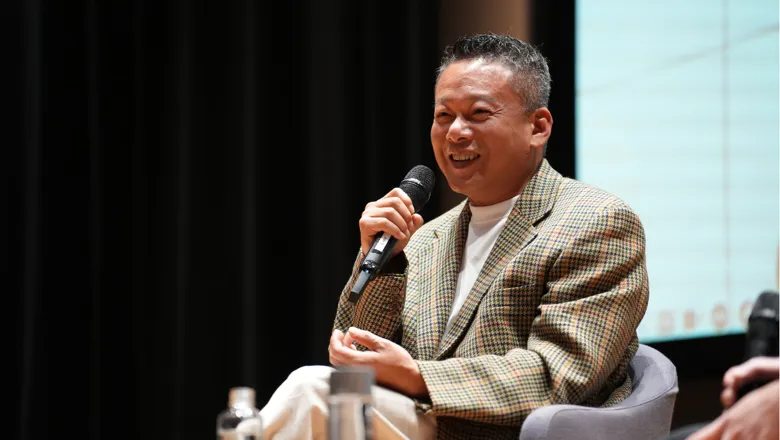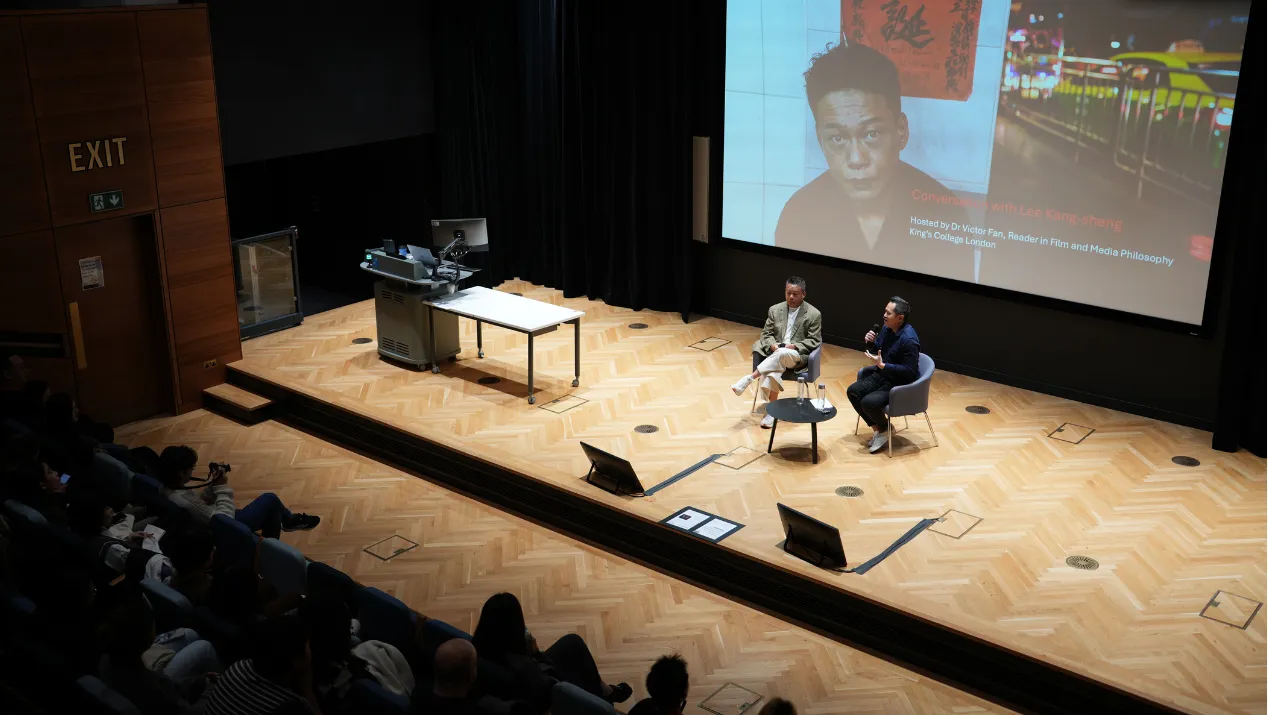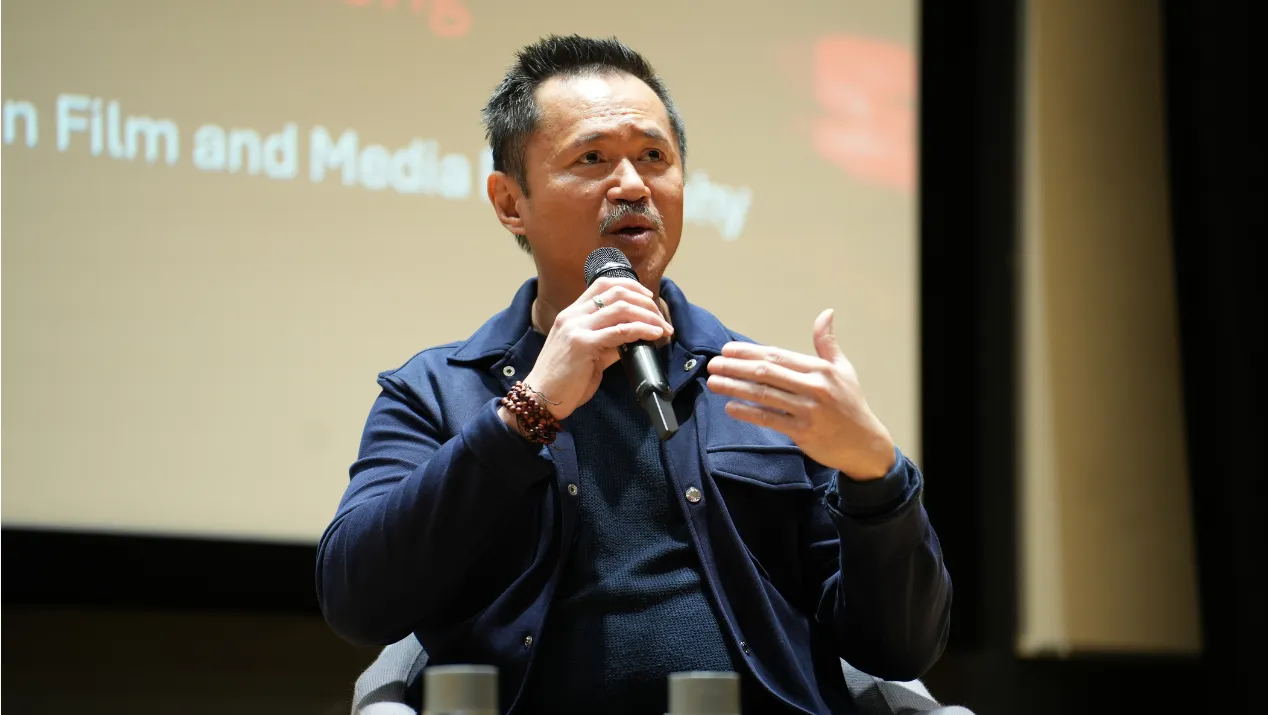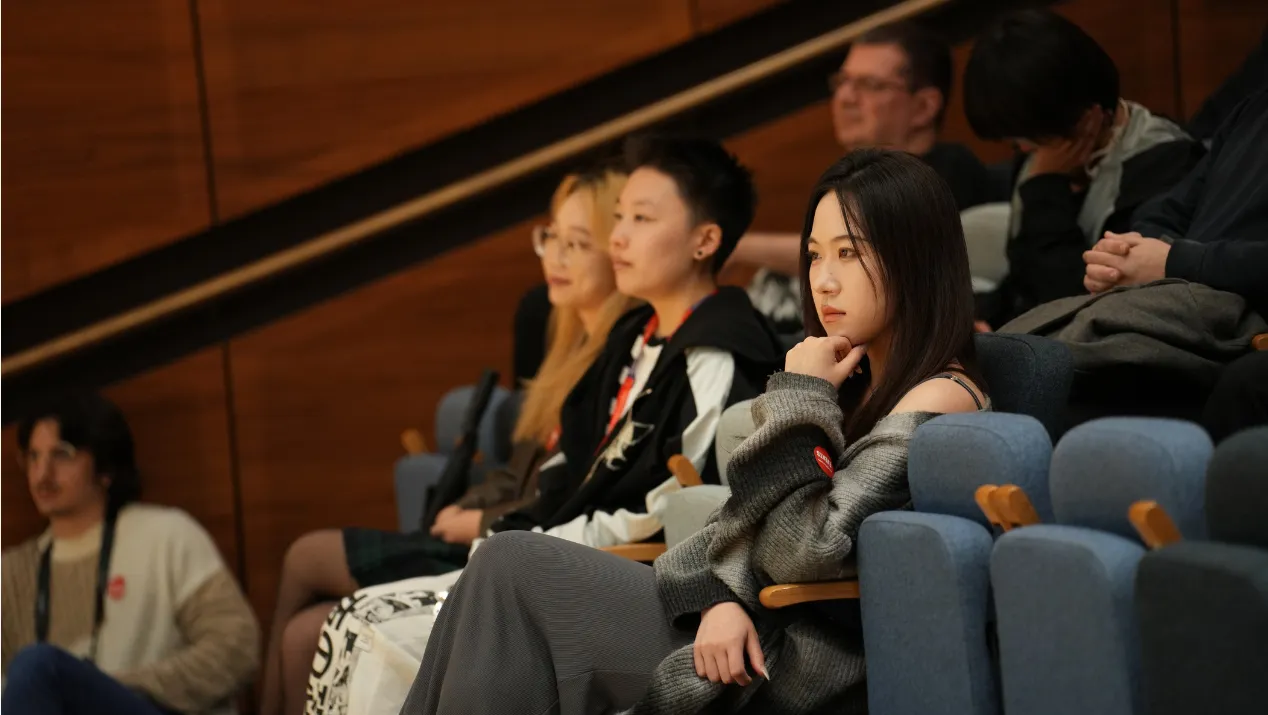As Tsai was taking a shot of me turning my head, he found my action too slow. After three takes, he asked if I could act more naturally. After the fourth take, Tsai lost his temper. ‘But being slow is my natural,’ I argued. Perhaps my slowness has influenced Tsai’s aesthetics gradually.
Lee Kang-sheng, actor and filmmaker
17 September 2024
'Long takes allow us to engage in time' – Lee Kang-sheng in conversation
Award-winning Taiwanese actor and filmmaker, Lee Kang-sheng spoke at King’s about his career, his working relationship with director Tsai Ming-liang and his perception of time and care in cinema.

On 10 September, Lee Kang-sheng joined Dr Victor Fan, Reader in Film and Media Philosophy, in conversation.
The talk, a collaboration between the Department of Film Studies and Garden Cinema, revolved around Lee Kang-sheng’s acting career and his performances in films of Tsai Ming-liang, one of the most celebrated Taiwanese directors.

Boys marked the beginning of a more than 30-year-long collaboration. Lee Kang-sheng went on to appear in numerous Tsai Ming-liang’s films. He was nominated for a Golden Horse Best Actor Award in 1994 for Vive L’Amour and won it in 2013 for his performance in Stray Dogs. He also won the Best Actor Award at the 2002 Cinemanila International Film Festival for his performance in What Time Is It There?

There has never been any pressure when I work with Tsai Ming-liang. I have always felt free because Tsai is like my mother, who offers me unconditional care… For him, I would shave my head to play a monk and put myself out of work for three months while my hair was growing back. It is a form of care and mutual giving based on karma.
Lee Kang-sheng, actor and filmmaker
The conversation also touched upon Lee Kang-sheng’s filmmaking career. His directorial debut, The Missing, won the KNF Award and the prestigious Tiger Award at the International Film Festival Rotterdam, the New Currents Award at the Busan International Film Festival, and the City of Athens Award at the Athens International Film Festival. His 2007 film Help Me Eros was nominated for the Golden Lion at the Venice Film Festival and won a special jury award at the World Film Festival of Bangkok.

This London visit of Lee Kang-sheng offered me a precious opportunity to get to know him as an actor and filmmaker. In Film Studies, Tsai’s cinema has always been regarded as slow cinema: one that employs long single-take sequences and a deliberately slow rhythm to engage the spectators in a state of mindfulness. It is therefore elating to hear how Lee discusses the relationship between film forms and time.
Dr Victor Fan, Reader in Film and Media Philosophy
Extended long takes are characteristic of Lee Kang-sheng’s work. For him, ‘stasis is part of duration’.
‘In a mainstream commercial film, there is a specific paradigm of shooting and editing that emphasises the film’s storytelling. But such a paradigm is like a form of translation: it translates a film’s embodied experience into something you can grasp and understand in logical terms easily. Long takes allow us to see and engage in time. It enables us to experience moments in life that are not always translatable.’

Stranger Eyes (2024, dir. Yeo Siew Hua), the latest film in which Lee Kang-sheng features as an actor, will appear in the ‘Main Slate’ selection of the 2024 New York Film Festival. It will then open the 2024 Taipei Golden Horse Film Festival on 7 November.

